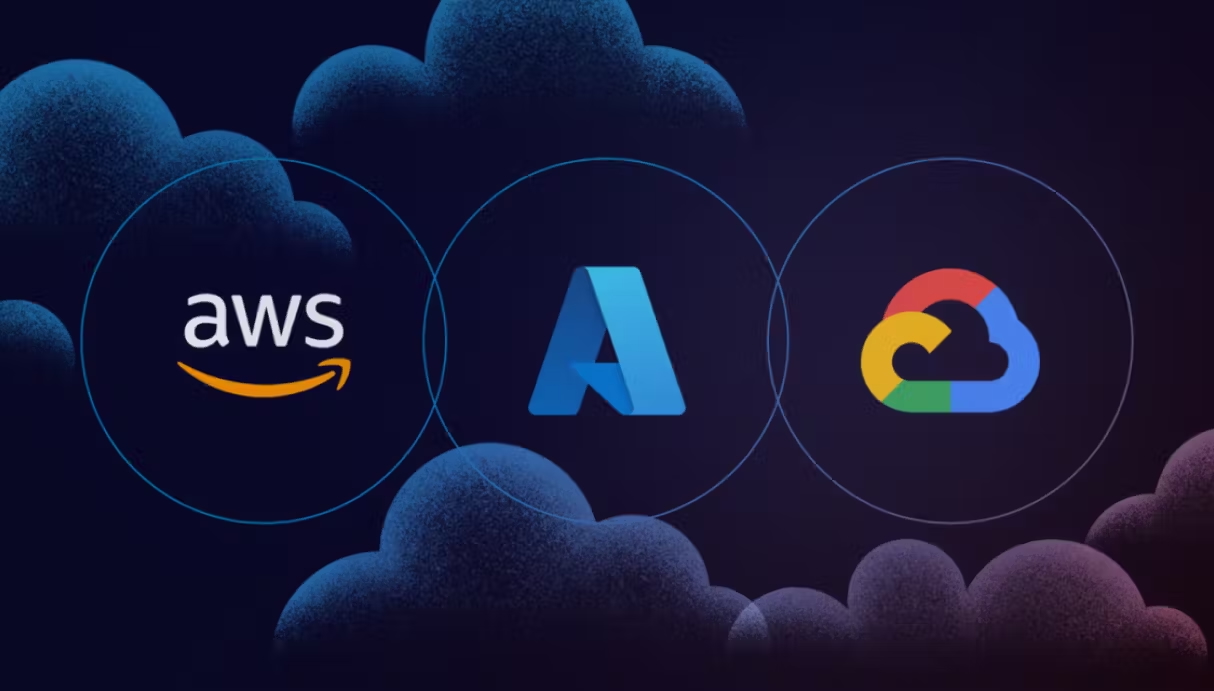As cloud computing dominates the IT landscape, organizations are often faced with a choice between the three major cloud providers: Amazon Web Services (AWS), Microsoft Azure, and Google Cloud Platform (GCP). Each provider offers a comprehensive range of services but differs in strengths, pricing, and ecosystem compatibility. This article provides a detailed comparison of AWS, Azure, and GCP to help you make informed decisions tailored to your business needs.
Key Factors to Compare Cloud Providers
When evaluating AWS, Azure, and GCP, organizations should consider several critical factors:
- Global Reach and Infrastructure
- AWS leads with the largest number of data centers and availability zones worldwide.
- Azure offers strong coverage with its global network of Microsoft-managed data centers.
- GCP, while smaller in scale, is growing rapidly with a focus on innovation and sustainability.
- Core Services
Each provider delivers a robust range of offerings, including compute, storage, networking, and databases.
Service Comparison by Category
1. Compute
- AWS:
- EC2 (Elastic Compute Cloud) offers the most flexible and mature compute solutions.
- Auto Scaling and Load Balancing are highly customizable.
- Azure:
- Virtual Machines (VMs) integrate seamlessly with Windows-based environments.
- Azure Kubernetes Service (AKS) provides efficient container orchestration.
- GCP:
- Compute Engine is optimized for cost and performance.
- Kubernetes Engine (GKE) is a leader in container orchestration.
Best for:
- AWS for broad options and customizability.
- Azure for enterprises using Windows or .NET.
- GCP for advanced container workloads.
2. Storage
- AWS:
- S3 (Simple Storage Service) is the industry leader in object storage.
- Offers specialized storage options, such as Glacier for archival data.
- Azure:
- Blob Storage is ideal for scalable and cost-effective storage.
- Strong integration with on-premises systems.
- GCP:
- Cloud Storage provides flexible pricing tiers and high performance.
Best for:
- AWS for reliability and vast ecosystem support.
- Azure for hybrid storage solutions.
- GCP for cost-efficient storage with sustainability.
3. Networking
- AWS:
- Virtual Private Cloud (VPC) with rich networking features like Direct Connect.
- Azure:
- Azure Virtual Network integrates well with enterprise systems.
- GCP:
- Google’s backbone network ensures high-speed, low-latency connections.
Best for:
- AWS for advanced networking configurations.
- Azure for enterprises using existing Microsoft tools.
- GCP for global connectivity and performance.
4. Databases
- AWS:
- RDS supports multiple database engines, including MySQL, PostgreSQL, and Oracle.
- DynamoDB excels in serverless NoSQL databases.
- Azure:
- SQL Database integrates seamlessly with Microsoft SQL Server.
- Cosmos DB offers globally distributed, multi-model databases.
- GCP:
- Cloud Spanner is known for global consistency and scalability.
- BigQuery is a leader in analytics databases.
Best for:
- AWS for variety and scalability.
- Azure for Microsoft SQL Server users.
- GCP for analytics and real-time data processing.
5. AI and Machine Learning
- AWS:
- SageMaker simplifies building and deploying machine learning models.
- Azure:
- Azure ML integrates well with other Microsoft AI tools and cognitive services.
- GCP:
- Vertex AI and TensorFlow offer powerful solutions for developers and researchers.
Best for:
- AWS for enterprise-ready ML tools.
- Azure for businesses already using Microsoft’s AI stack.
- GCP for cutting-edge AI research and development.
6. Pricing
- AWS: Offers pay-as-you-go pricing with a wide range of discount options for reserved instances.
- Azure: Provides competitive pricing and discounts for hybrid scenarios.
- GCP: Often the most cost-efficient, with sustained use discounts and preemptible VMs.
Best for:
- AWS for flexible pricing models.
- Azure for hybrid setups.
- GCP for budget-conscious workloads.
Strengths and Weaknesses
| Feature | AWS | Azure | GCP |
|---|---|---|---|
| Strengths | Vast ecosystem, market leader | Enterprise integration | Innovation, AI, and analytics |
| Weaknesses | Complex pricing | Less user-friendly UI | Smaller global footprint |
When to Choose Each Provider
- AWS: Ideal for startups, enterprises, and organizations seeking a mature and flexible cloud platform.
- Azure: Best for enterprises heavily invested in Microsoft technologies or hybrid environments.
- GCP: Perfect for organizations focusing on AI, analytics, and cost-efficiency.
Conclusion
AWS, Azure, and GCP each bring unique strengths to the table. The best choice depends on your organization’s priorities, whether it’s scalability, integration with existing systems, or cost efficiency. Carefully evaluate your requirements and take advantage of free trials to determine which platform aligns with your goals.

